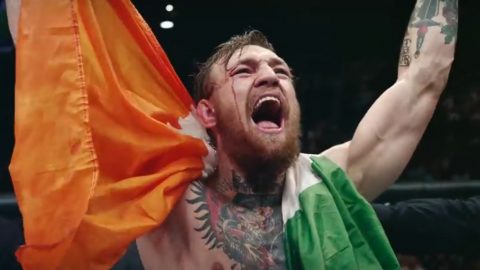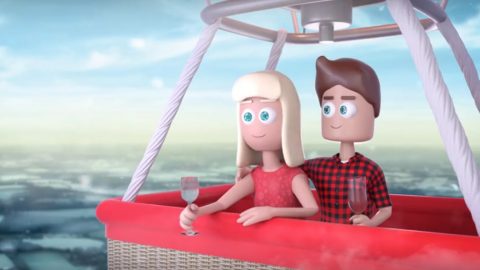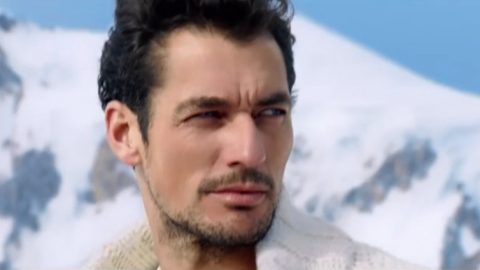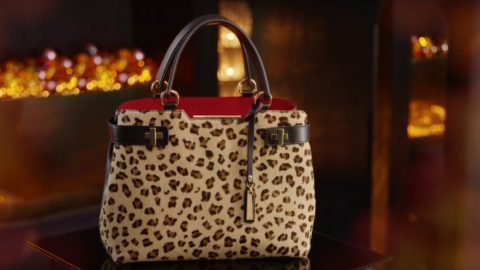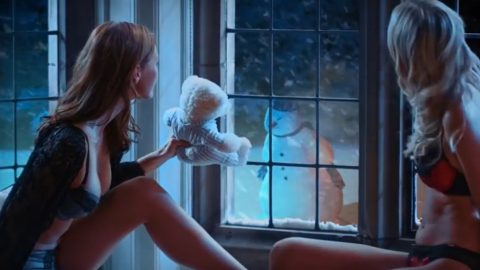The NFL’s Super Bowl is the most important date on the US advertising industry’s calendar. This year one commercial more than any other seemed to capture the American public’s imagination since it stars David Beckham free climbing across the rooftops of New York City dressed only in his H&M vest and pants.
The film is underpinned by Nobody But Me, a hard driving piece of soul rock by The Human Beinz, a garage band from Ohio. Nobody… has been dubbed ‘the most negative song in rock’ since it repeats the word ‘No’ over 100 times. Which is a little unfortunate since, as originally written and recorded by The Isley Brothers in 1963, it was a joyful piece of gospel-inflected R’n’B with a heavy backbeat which was clearly designed to get the party going.
Five years later, of course, America was dancing to a different drum. Complete with a searingly psychedelic guitar solo by Joe ‘Ting’ Markulin, The Human Beinz’s nuggetsy take on the tune took them to Number 8 on the Billboard charts for the Capitol label – and created a collectible classic which is now worth upwards of £50.
The follow-up was an ultimately ineffectual version of Bobby Bland’s Turn On Your Lovelight – by then a staple in The Grateful Dead’s live set – which may have taken The Human Beinz to Number One in Japan but barely crept into the US Top 100. So that was effectively that for the band until 2004 when Quentin Tarantino introduced them to a whole new audience by including Nobody… in Kill Bill: Vol 1. Martin Scorcese then used the track in The Departed and it even popped up in an episode of the American version of the office.
Which isn’t bad going for a one hit wonder from an era that was full of them. By contrast our next act Fargo can’t even make that claim to fame. In fact we probably shouldn’t be discussing them here since they’re not even in a TV commercial. But Unilever have used a re-recording of one of their tracks in an ad for Surf washing powder – the one in which Surfy (ouch!) goes to a rock festival – so let’s stretch the point.
Fargo were a pair of singers from Salt Lake City who, quite co-incidentally, were briefly signed to Capitol in 1968 and may even have run into The Human Beinz in the corridors of their record company’s famous Hollywood office block. Before they upped sticks and decamped to RCA, Fargo recorded a couple of titles for a single, the B side of which was Sunny Day Blue. You’d be hard pressed to tell it from the anondyne version in the Surf ad but this is a delicate piece of period sunshine pop which presages the soft rock/ singer songwriter styles soon to become so prevalent in the first half of the 1970s.
Sunny Day… was actually written by one Marty Cooper – who had a hand in Jack Nitzsche’s Lonely Surfer, worked with the legendary Lee Hazlewood and discovered Jennifer Warnes as well as coming up with songs for Bobby Bare, Stevie Wonder and Donny & Marie Osmond. It was also arranged by Al Capps whose name will always be associated with country rock pioneers The Nitty Gritty Dirt Band. So while it’s not quite as perfect as some might claim, Sunny Day Blue is still worth a couple of minutes of your time if jangly guitars, tambourines and soft harmonies are your thing.
Meanwhile, back in Detroit, 1968 turned out to be another bumper year for Berry Gordy Jr’s Tamla Motown organisation. The Four Tops’ Walk Away Renee, The Supremes’ Love Child, Stevie Wonder’s For Once In My Life and The Temptations’ Wish It Would Rain and Cloud Nine all kept the hit factory well oiled.
And then there was Marvin Gaye who ended the year with the mighty I Heard It Through The Grapevine but began it with a clutch of duets with Tammi Terrell, one of Tamla’s most tragic figures.
The girl born Thomasina Montgomery was clearly something special from the get go. Before she signed with Motown in 1965 at the age of 20 she had already recorded for Wand and Checker and toured with James Brown. But it was only after Gordy persuaded her to change her name to something ‘sexier’ and later paired her with Marvin Gaye that everybody realised just how special she was.
With the husband and wife songwriting and production team of Nikolas Ashford and Valerie Simpson behind them, Gaye and Terrell racked up seven US Top 40 singles ( six of which also made the UK charts) with the likes of If I Could Build My Whole World Around You, Ain’t Nothing Like The Real Thing, and The Onion Song.
But by the Spring of 1968, when they cut the You’re All I Need To Get By which Freeview have licensed for their slightly silly Cat and Budgie campaign, Terrell’s days were already numbered. The severe migraines she had suffered for year were finally diagnosed as a brain tumor after she had collapsed on stage while performing with Gaye the previous October. Although she had been operated on, there were few signs of improvement and it has been suggested that she sang You’re All I Need…and …Real Thing from a wheelchair.
More surgery was to follow and in 1969 Terrell was advised to give up performing. She died in March the following year six weeks short of her 25th birthday. Not only did the world lose a great talent but Marvin Gaye was absolutely devastated. A shy and introverted man, he had been brought out of himself by the effervescent Tammi Terrell. And although it could be claimed that some of his best work was still to come, it would soon become abundantly clear that without her support his happiest days were behind him.
